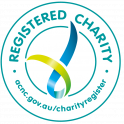Q – How long does it take to start using a CCS after first contacting them?
A – There is no set answer for this. Many CCSs have waiting lists so it is important to phone them at the earliest possible opportunity. Some services have no waiting lists. It is often more likely that there is a waiting list for supervised visits but not for facilitated changeovers.
The staff at the CCS will explain the process for using the service – this will include an intake assessment, where an exploration of the issues around your situation will be conducted to see if the proposed arrangements can be properly managed. The staff will inform you of the outcome of the assessment process and it is there that you are likely to get some idea of whether the arrangements can proceed with that particular CCS or whether other options need to be considered.
It is important to seek additional support (such as counselling) if you find that you, and/or your children, are struggling with waiting periods or the stresses attached to the separation.
Q – I have court orders or a parenting agreement to have contact with my kids at a CCS. Is the CCS bound by this order/agreement?
A – No. Children’s Contact Services are independent services and not bound by Court orders or parenting agreements. Most services will, however, undertake a thorough intake assessment to determine whether safe and child-focused arrangements can be facilitated and, if so, will attempt to maintain the spirit of the agreement (subject to resources). Services are likely to make referrals to other support services if CCS facilitation is not possible at that time.
Q – How can I help create a successful visit?
The CCS can provide parents and guardians with information and help in assisting the children in having safe, comfortable and satisfying visits. Following the rules and guidelines of the service, is the basis of this happening. Parents the child lives with should be positive and encourage the children to enjoy their visit.
After the visit, parents should be willing to listen if the children want to talk about the visit but should never pump the child for information or be negative about what is occurring. The visiting parent should come prepared to have a good time within the limits set by the CCS.
Children are looking for demonstrations of love and acceptance; the other factors (such as adult conflict and Court proceedings) are not as important to them.
Q – Can I get information for Family Law Court proceedings from a CCS?
A – There are a variety of practices regarding the taking of notes and the supply of reports for Family Law Court purposes. Many CCSs take observational notes of visits and these notes may be available for proceedings in the form of a report or through the subpoena of the file.
Some CCSs take few or no notes and therefore are not able to provide much written evidence to the Courts. CCS staff are sometimes subpoenaed to give evidence. Fees may apply for the provision of reports, files or staff to give evidence. It is common practice for a CCS to provide reports and information to all parties, regardless of who requests the report/file.
Q – Are there fees for using a CCS?
A – This varies service to service. Some (though few) government funded CCSs do not charge fees, whilst most others do charge. The fees for funded services use vary from a nominal amount (i.e., $5 per parent) to hourly rates. Fees may also apply for the provision of reports, file notes or staff appearances at court proceedings.
Many funded CCSs do provide an opportunity for participants to apply for a fee reduction or waiver. Privately operated services and full fee paying CCSs charge full fees at varying rates.






